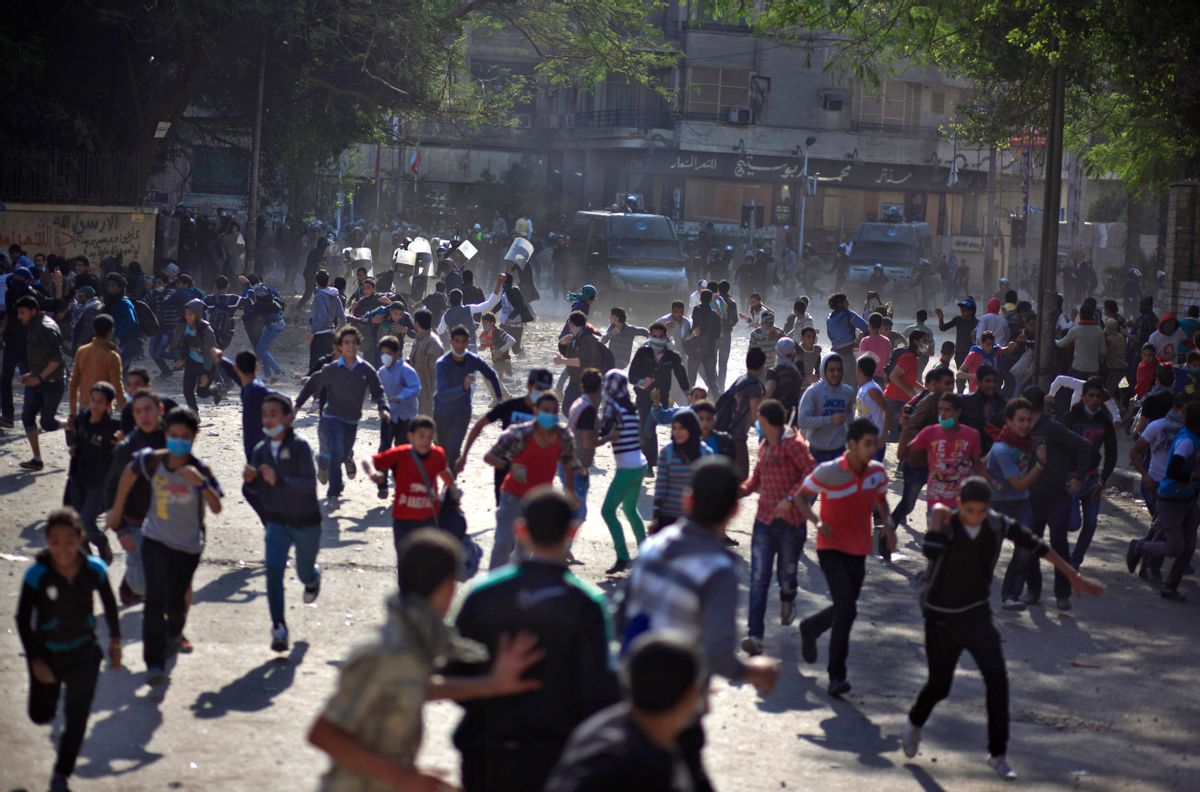 CAIRO, Egypt — Egypt's President Mohamed Morsi approved a draft law on Monday, allowing the military to arrest civilians and assist police after at least 50 people died in anti-government protests.
CAIRO, Egypt — Egypt's President Mohamed Morsi approved a draft law on Monday, allowing the military to arrest civilians and assist police after at least 50 people died in anti-government protests.
The news broke when an anonymous source told Reuters the army would "behave like a police force." The wire service said that means "detainees would go to a civilian and not military court."
The news follows Morsi's state of emergency and curfew declaration in three Egyptian cities — Suez, Ismailia and Port Said. It's unclear if the army will operate in the three cities under emergency law or all of Egypt.
The army's restoration as an internal policing force is likely to spark significant controversy.
GlobalPost's senior correspondent in Egypt, Erin Cunningham, reports:
The protesters’ battle with the army over the last two years was a bloody and repressive exercise in which military courts tried thousands of activists. The election of Morsi and subsequent withdrawal of the military troops from public life was hailed as the end of a dark and dangerous period of army rule.
To have the soldiers reenter the scene with such sweeping powers so soon is a blow to the pro-democracy protesters, and signifies a willingness by Morsi, once an enemy of the army, to call on his erstwhile foe to quash challenges to his power. It will also likely deepen the radicalization of protesters already resorting to more violent tactics to fight the state.
Recent protests centered on the second anniversary of the revolt against former President Mubarak, which fell on Friday, called by activists “Friday of Rage.”
But violence also erupted over the weekend after death sentences were given to 21 Port Said soccer fans for their part in a deadly soccer riot last year. Tens of thousands of people took to the streets in Port Said, and according to The New York Times, police shot dead 30 protesters on Saturday.
"I have said I am against any emergency measures but I have said that if I must stop bloodshed and protect the people then I will act," Morsi said on state television Saturday, Sky News reported. "If I must, I will do much more for the sake of Egypt. This is my duty and I will not hesitate."
While it remains unclear for how long army troops will be able to make arrests — or whether or not the detainees will be tried in military courts — it is also an indication that Egypt’s police force remains weak, fractured and ill-equipped to handle the unrest.
The army may see for itself a future role as a nation-wide stabilizer if the unrest continues.
Erin Cunningham contributed to this report from Cairo.



Shares